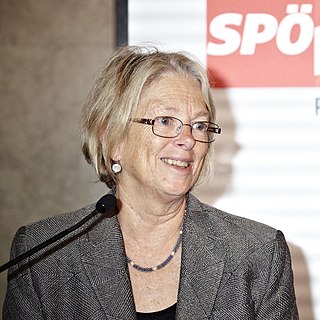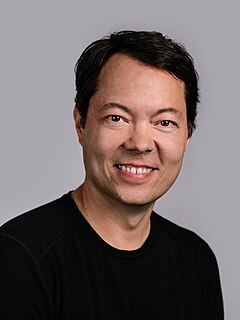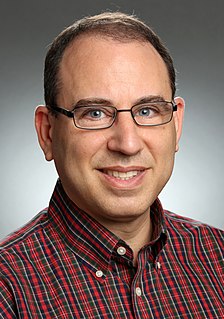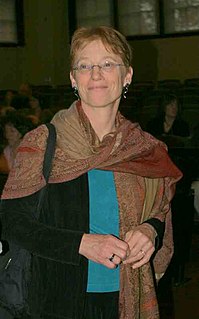Fair use is a doctrine in United States law that permits limited use of copyrighted material without having to first acquire permission from the copyright holder. Fair use is one of the limitations to copyright intended to balance the interests of copyright holders with the public interest in the wider distribution and use of creative works by allowing as a defense to copyright infringement claims certain limited uses that might otherwise be considered infringement. Unlike "fair dealing" rights that exist in most countries with a British legal history, the fair use right is a general exception that applies to all different kinds of uses with all types of works and turns on a flexible proportionality test that examines the purpose of the use, the amount used, and the impact on the market of the original work.

Intellectual property (IP) is a category of property that includes intangible creations of the human intellect. There are many types of intellectual property, and some countries recognize more than others. The most well-known types are copyrights, patents, trademarks, and trade secrets. The modern concept of intellectual property developed in England in the 17th and 18th centuries. The term "intellectual property" began to be used in the 19th century, though it was not until the late 20th century that intellectual property became commonplace in the majority of the world's legal systems.

Pamela Samuelson is the Richard M. Sherman '74 Distinguished Professor of Law and Information Management at the University of California, Berkeley with a joint appointment in the UC Berkeley School of Information and Boalt Hall, the School of Law.
Lyman Ray Patterson was an American law professor and an influential copyright scholar and historian.
Martha Woodmansee is an American professor at Case Western Reserve University in Cleveland, Ohio. She has been a member of the English department since 1986 and joined the faculty at the School of Law in 2003. In addition, she was the Director of the Society for Critical Exchange, a national organization devoted to collaborative interdisciplinary work in theory. In 2008 she has founded the International Society for the History and Theory of Intellectual Property. A 1999 Guggenheim fellow and 2004 Fulbright fellow, her teaching and research interests are 18th- and 19th-century literature, critical theory, cultural studies including book piracy and the emergence of international copyright during the nineteenth century.

Friedrich "Fred" von Lohmann is an American lawyer who used to practice as a legal director at Google.
The Copyright Law of the United States grants monopoly protection for "original works of authorship". With the stated purpose to promote art and culture, copyright law assigns a set of exclusive rights to authors: to make and sell copies of their works, to create derivative works, and to perform or display their works publicly. These exclusive rights are subject to a time limit, and generally expire 70 years after the author's death or 95 years after publication. In the United States, works published before January 1, 1927, are in the public domain.
Kevin Jerome Greene is an American lawyer and professor of contract music law and entertainment law at Southwestern Law School in Los Angeles, California. Professor Greene was among the first legal scholars to examine the treatment of African-American art forms, such as the blues, under intellectual property law.
David Nimmer is an American lawyer, law professor, renowned as an expert in United States copyright law. He received an A.B. with distinction and honors in 1977 from Stanford University and his J.D. in 1980 from Yale Law School, where he served as editor of the Yale Law Journal. David Nimmer is of counsel to Irell & Manella LLP in Los Angeles, California. He also serves as a Professor from Practice at University of California, Los Angeles Law School and Distinguished Scholar at the Berkeley Center for Law and Technology. In 2000, he was elected to the American Law Institute. He has served as a guest professor at the University of Haifa, Yeshiva University, the University of Miami, and Syracuse University.

Freedom of Expression® is a book written by Kembrew McLeod about freedom of speech issues involving concepts of intellectual property. The book was first published in 2005 by Doubleday as Freedom of Expression®: Overzealous Copyright Bozos and Other Enemies of Creativity, and in 2007 by University of Minnesota Press as Freedom of Expression®: Resistance and Repression in the Age of Intellectual Property. The paperback edition includes a foreword by Lawrence Lessig. The author recounts a history of the use of counter-cultural artistry, illegal art, and the use of copyrighted works in art as a form of fair use and creative expression. The book encourages the reader to continue such uses in art and other forms of creative expression.
The Center for the Public Domain was a charitable foundation founded in 1999 by Bob Young as the Red Hat Center. It provided free online legal resources, sponsored public domain spaces on the Internet, and campaigned for copyright reforms.

Wright v. Warner Books (1991) was a case in which the widow of the author Richard Wright (1908–1960) claimed that his biographer, the poet and writer Margaret Walker (1915–1998), had infringed copyright by using content from some of Wright's unpublished letters and journals. The court took into account the recent ruling in Salinger v. Random House, Inc. (1987), which had found that a copyright owner had the right to control first publication, but found in favor of Walker after weighing all factors. The case had broad implications by allowing the use of library special collections for academic research.

Eric Goldman is a law professor at Santa Clara University School of Law. He also co-directs the law school's High Tech Law Institute and co-supervises the law school's Privacy Law Certificate.
Kenneth D. Crews is an American copyright scholar and librarian. He is particularly noted for his scholarship around educational and library exceptions in copyright law, and was commissioned by WIPO to write an examination of those exceptions around the world. He is a frequent speaker and consultant on library-related copyright matters, and was called for expert testimony in the Cambridge University Press v. Becker copyright case challenging the practice of Georgia State University's e-reserves system. Crews is noted for pioneering the concept of the "fair use checklist", which has enjoyed widespread use in libraries and academic computing departments.
The Digital Future Coalition (DFC) was a US-based copyright advocacy organization established in 1995. Founded by leading scholars and activists in the library and public interest world, DFC was a precursor to organizations like Public Knowledge and the Library Research Coalition. The organization emerged from a round table of legal scholars and library associations members convened by Peter Jaszi in fall of 1995 to review the Clinton Administration's White Paper on Intellectual Property and the National Information Infrastructure, authored by Bruce Lehman. That White Paper proposed a variety of new legislative approaches within copyright, generally broadening its scope and reach, and the roundtable discussion brought forward the notion of establishing a lobbying group to counter the commercial copyright interests' lobbying groups.

Rebecca Tushnet is an American legal scholar. She serves as the Frank Stanton Professor of First Amendment Law at Harvard Law School. Her scholarship focuses on copyright, trademark, First Amendment, and false advertising.

Patricia Ann Aufderheide is a scholar and public intellectual on media and social change, and an expert on fair use in media creation and scholarship. She is a University Professor at American University in Washington, D.C., where she has worked since 1989 and directed the Center for Social Media, later the Center for Media & Social Impact, beginning in 2000. She has received multiple awards and honors for her journalism and scholarship, including the John Simon Guggenheim Memorial Fellowship in 1994, and a Fulbright Research Fellowship in 1995, and a Distinguished Career Award in 2008 from the International Digital Media and Arts Association.
The Media Education Foundation is a nonprofit organization established in 1992 that produces and distributes documentary films about the impact of American mass media. Their films focus on topics such as gender, race and representation, health, class, consumerism, politics, and the environment, with the purpose of encouraging critical thought about the media, its effects on viewers, and on the world more broadly.

Dan L. Burk is Chancellor's Professor of Law at the University of California, Irvine School of Law and is a founding member of the law faculty. His areas of expertise include intellectual property, gene patenting, digital copyright, electronic commerce and computer trespass.
Rosemary J. Coombe is a Canadian anthropologist and lawyer, She is a Professor in the Department of Anthropology at York University and Tier 1 Canada Research Chair in Law, Communication and Cultural Studies. Previously, she was a Full Professor in the Faculty of Law at the University of Toronto.









